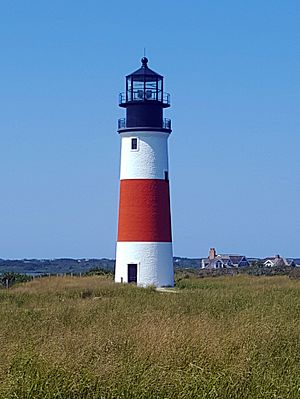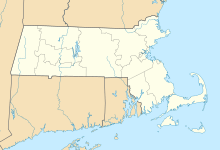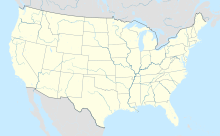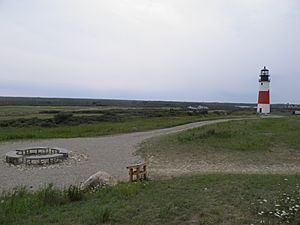Sankaty Head Light facts for kids
 |
|
| Sankaty Head Light | |
|
|
|
| Location | Siasconset, Massachusetts |
|---|---|
| Coordinates | 41°17′03.78″N 69°57′58.45″W / 41.2843833°N 69.9662361°W |
| Year first lit | 1850 |
| Automated | 1965 |
| Foundation | Brick |
| Construction | Brick / Granite |
| Tower shape | Cylindrical |
| Markings / pattern | White with red band midway and black lantern |
| Height | 70 feet (21 m), 158 feet (48 m) from sea level |
| Original lens | Second order Fresnel lens |
| Range | 24 nautical miles (44 km; 28 mi) |
| Characteristic | White, flashing every 7.5 sec |
The Sankaty Head Light is a famous lighthouse found on Nantucket island. Lighthouses are tall towers with bright lights that help guide ships safely, especially at night or in bad weather. This lighthouse was built in 1850. It was later updated to work automatically in 1965. It is still helping ships today!
You can find the Sankaty Head Light at the very eastern tip of Nantucket island. It is in a small village called Siasconset. This lighthouse was one of the first in the United States to use a special type of lens called a Fresnel lens. This lens makes the light much brighter and easier to see from far away.
Contents
The Story of Sankaty Head Light
Why a Lighthouse Was Needed
The waters near the eastern coast of Nantucket were known to be dangerous for ships. There were many hidden sandbanks, called shoals, that could cause ships to get stuck or even sink. Because of these dangers, the United States government decided in the 1840s that a strong, bright lighthouse was needed there. It would warn sailors about the hazards.
Building the Lighthouse
In 1848, the government set aside $12,000 to start building the lighthouse. More money, about $8,000, was added in the years that followed to finish the project. The Sankaty Head Light officially began helping ships in February 1850.
The lighthouse tower is about 60 feet (18 m) tall. The bottom part of the tower is made of brick, and the top part is built with strong granite stone. When it was first built, the light inside the tower turned using a special clockwork system. This system was powered by weights, much like an old grandfather clock.
Home for the Keeper
When the lighthouse was built, a brick house was also constructed right next to the tower. This house was for the lighthouse keeper and their family. The keeper's job was to live at the lighthouse and make sure the light was always working. In 1887, this first house was taken down, and a new, bigger house was built for the keeper.
At the same time, the lighthouse tower got some updates. A new section was added to the top where the light was. This made the tower about 10 feet (3.0 m) taller than before.
Modern Updates
Over the years, the Sankaty Head Light was updated with new technology. In 1933, the light was changed to use electricity instead of oil lamps. This meant the old mechanical system that turned the light was no longer needed.
The original special lens was removed from the lighthouse in 1950. You can now see this historic lens at the Nantucket Whaling Museum. In 1965, the lighthouse became fully automated. This means it could run all by itself without a keeper living there all the time.
Moving the Lighthouse to Safety
In 1987, the Sankaty Head Light was added to the National Register of Historic Places. This is a list of important historical places in the United States.
Over many years, the ocean waves slowly wore away the land around the lighthouse. This process is called erosion. The lighthouse was getting dangerously close to the edge of the cliff. To save it, a group called The 'Sconset Trust bought the lighthouse in 2007. In October of that year, they carefully moved the entire lighthouse away from the eroding cliff. It was moved about 400 feet (120 m) inland to a safer spot.
Images for kids
 | Madam C. J. Walker |
 | Janet Emerson Bashen |
 | Annie Turnbo Malone |
 | Maggie L. Walker |






